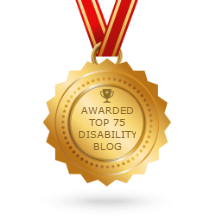Individuals with disability who are looking for work will have to consider whether or not they want to disclose their disability to their future employer. Before you make a decision about disclosure, it is important to understand the facts and to weigh the advantages and disadvantages of disclosing your disability.
What is Disclosure?
If you choose to disclose, you are making a decision to release confidential information about your disability to your employer. No one can force you into disclosing and only you can make the decision to tell your future boss or supervisor. It is against the law for a supervisor to make you disclose. Your disability will remain confidential until YOU decided to tell others about your disability.
Who can disclose?
YOU and only you. No one can force you to disclose. Once you learn the advantages and disadvantages of disclosing, you have to make a personal decision about whether or not you want to tell your supervisor about your disability. If you do share your disability, your supervisor cannot treat you any differently. In fact, it is illegal to discriminate against an individual because he or she has a disability. However, your supervisor can only offer accommodations (extra support given to an individual to ensure he or she can complete the job based on their needs) after you disclose your disability. Again, disclosing is a personal choice and you are never required to tell anyone about your disability.
When should I disclose?
There is no perfect time to disclose your disability. Since disclosure is a personal decision, you get to decide if and when you want to tell your supervisor. Here are just a few suggestions of when you can disclose, if you decide you want to:
- In a cover letter
- During an interview
- After an interview
- After you have been hired
- During training
- In an email or during a phone call
- At any time during your employment
- Never
Remember, if you choose to disclose, you can decide when and what to tell your employer. There may not be a perfect time to disclose, but if you decide to, you should always prepare what you want to say before you meet with your supervisor.
How should I disclose?
After you have thought about the advantages and disadvantages of disclosing, you are ready to make a decision. If you are willing to tell your supervisor about your disability, you should schedule a meeting with your supervisor and plan what it is you want to say. It is wise to practice what you want to say as well. Talk over the decision with a trusted friend or family member but don’t forget, no matter what your support team will say, the final decision to disclose is yours.
When you think about disclosure, there are two things to remember. First, it is your choice. Second, disclosure is nothing to be embarrassed about because your disability is nothing to be embarrassed about. You have a special skills that set you apart from others and that is not a bad thing. Your specific skills, interests, and personality landed you the job in the first place. You are unique and qualified for the job at hand. And now YOU have a choice to make.
About the Author:
Erin Kelly is an Employment Specialist at Search, Inc. and one of our jjslist.com on-line job coaches. Erin helps people with disabilities find and keep jobs. If there is something you’d like Erin to address in a future blog, let her know at info@jjslist.com.






3 Comments
Interesting acticle.
I was curious if Erin or one of the other bloggers had information about the Federal Schedule A/ Selective Service Program? Practical advice about how to use Schedule A/ and the Selective Service Program to help find Federal employment? Specifically the difference between the competitive and non-competitive Selective Service application process, where to find Administrative Selective Service Coordinator contact information, how to submit a resume and Schedule A Letter to the Coordinator? Also, how to locate competitive job postings on USA Jobs website that accept Schedule A applicants, how to apply using Schedule A, which boxes to check on the application, how to prepare a Schedule A resume and what to expect during the applications process? Although there are a lot of Federal website resources available to help disabled veterans, there is little in the way of support for non-veterans with disabilities.
Also, can anyone explain explain how, “by law,” the hiring preference works between the various targeted groups like veterans, disabled veterans, Americans with disabiliites, Native Americans, etc? My understanding from the OPM is that regular veterans have hiring preference over all targeted hiring groups — the disabled, etc.
Getting that notification from the VA – “qualified, but not referred” because you are not a veteran would be a blow to most job seekers, but hurts Americans with disabilities the most — many who were “not fit” for military service.
These facts are very well put and the fact that it can be used in a business setting is even more interesting.
I have an obvious disability (stutter) as well as some ‘invisible’ disabilities (single-sided deafness and mental health issues).
Whilst I am not able to say when a person should or shouldn’t disclose, I think it is worthy to think about your level of respect for you and how this relates to what you are aiming for in your decision. For me personally, I am glad on one level I had the option to disclose taken away from me when talking. However, this also has bouth the discrimination and attitudes of misconception and acceptance of my intellect.
As a person with a disability, my role is not to accommodate the other person’s comfort by softening the blow/impact their ignorance has on me. However, I do need to accept that people are more ignorant than aggrogrant, and to be fair our societal systems encourged this. For years, people with disabilities where assigned the back seat and around the corner to any social intereaction within the mainstream. Henceforth not allowing for diversity to flourish. This of course does not mean you let discrimination go. I spent 15years working in a huge government organisation that would not acknowledge my abilities or disabilities. In fact I was terminated from my employment on the grounds I did not understand my role. I think went unfair dismissal only to be undersold by the lawyer. The debate about disclosure in my view is ‘over’ and the need to hold people’s myopic viewpoints to account is needed. A simple apology does not have any currency unless there is measurable change. Unless your disability does impact your ability to undertake a role significantly there should be no second guessing on recruitment. Workplace adjustments are environmental and technological not attitudinal. We are all human and deserve to be treated with compassion, respect and inclusiveness. PWD are not the only part to this dynamic. So reflect on why we have this debate and how it affects you. If you are annoyed with the employer demanding to know the intrigrite details then maybe they are not for you. You can only be you. Good luck with it.